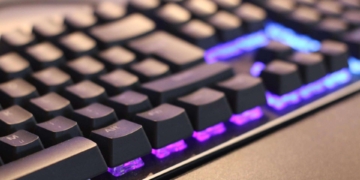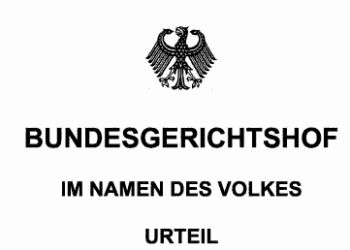The following list is intended to provide a brief overview of the main points of copyright in computer games. It should be noted that this is only general information and that legal advice should always be sought for specific questions.
A few key points can be noted, however:
- Copyright protects the intellectual property of a work. In the case of a computer game, the work is usually the program as well as the graphics and sounds.
- The term of copyright protection is 70 years after the death of the author. An author may reproduce, distribute and make his work available to the public.
- Reproduction, distribution or making available to the public of the work is prohibited without the consent of the author.
- However, there are some exceptions to copyright, e.g. for private purposes or for teaching.
- Violations of copyright law may result in warnings and claims for damages.
Copyright in computer games
What is a computer game?
A computer game is an interactive digital entertainment software that invites players to interact in a live virtual environment through video games. The goal of the game is to achieve a certain result. It can be played individually or by several people. Computer games can also be considered electronic sports (i.e., esports, which are subject to further extensive legal issues) in which the player’s skill and dexterity are pitted against each other. There are many different types of computer games that have different rules and play styles. Some of the most common types are: Role-playing games, Strategy games, First-person shooter games and Racing games. Each of these games has its own specific characteristics and rules, but they all have one thing in common: they are based on copyright.
Copyright protects an author’s intellectual creations from unauthorized use by third parties. Such intellectual creations include computer programs, software programs, and other types of digital media (including computer games). To ensure that no one infringes copyright, computer game developers must design their works to comply with applicable copyright laws. Developers must ensure that all elements of the game are protected by copyright – from program code to graphics and music. For this purpose, extensive licensing agreements are usually concluded with partners or freelancers, which allow the developer to exploit the assets.
Who is the author of a computer game?
In Germany, a computer game is considered a work within the meaning of the German Copyright Act (UrhG). The author of a work is any natural person who has created the work alone or jointly with others. Thus, a computer game can be created by a single person as well as by several people at the same time. The question of who is the author of a computer game therefore depends on how the game was created. If a computer game was developed jointly by several persons, these persons are also joint authors of the game. Each of the parties may assert its rights to the Game and authorize or prohibit the use of the Game. In practice, it is often difficult to determine who exactly was involved in the development of a computer game. Especially when the game was developed by a large team and many different people worked on different aspects of the game. If developers have joined forces or formed a corporation together, the exploitation rights to these copyrights are usually held by the company.
Scope of protection of copyright in computer games
Copyright law provides comprehensive protection for the creators and developers of computer games. The scope of copyright protection for computer games generally includes both the content of the game and the graphics, animations, sounds, and other visual elements that make up the game. In addition, copyright may also cover the game mechanics themselves, i.e. the ways in which the player has to play. However, it depends on details and concrete content. This also then includes rules and guidelines that are programmed into the game. However, it is important to understand not only what is protected by copyright, but also what is not protected. For example, programs and systems that must be implemented for the game but are not part of the game itself (such as operating systems or graphics drivers) are not covered by the developers’ copyright. Also, certain types of information and code used in the game (e.g. algorithms) can only be protected to a limited extent. In addition, it is also possible that individual elements of the game may not fall under copyright protection.
Rights of use for computer games
Permissible and impermissible use of computer games
In terms of copyright and computer games, there are usually very clear rules that must be followed. As a general rule of thumb, remember that the developer of the game (and/or the publisher of the game through the use of exploitation rights) has the sole right to determine how the game is used. If you own a game, you can use it only for your personal use. This includes installing it on more than one computer or sharing the game with other people. However, it is usually not allowed to modify or change parts of the game. This often involves the use of cheat codes or modifications to the graphics. The sale of copies of the game is also not one of the permissible types of use and is illegal, as well as possibly even punishable.
In contrast, it is also possible to reuse certain types of computer games under special licensing conditions. Many developers now offer open source licenses that allow end users to modify and redistribute certain portions of the program code. In such cases, the developer still gets the copyright/exploitation rights to their code and can determine how it is used. However, users must adhere to certain guidelines – for example, they must be able to disclose change sources and have change suggestions submitted – in order to comply with the license terms. Sometimes it is also allowed to use certain components of a computer game to develop other projects – as long as this component is not protected by copyright. For example, you could integrate certain graphics or sound effects into another game or insert them into other projects. However, it is important to note that such actions can be done only after the permission of the original owner and you comply with all the guidelines that apply to the use of the component.
Art, computer games and copyright
In recent years, copyright law has changed significantly in connection with the development of computer games and other digital products. It is now generally accepted that the art and content contained in a computer game is protected by copyright. This means that those who participated in the development of the game have rights. Some of the most important rights are the right to recognition for their work, and the right to distribute and exploit their works. In addition, copyright protects not only the original authors of computer games, but also all other participants in the development of the game. This includes the graphic designers, programmers and possibly testers. They are all entitled to an appropriate fee for their work. Copyright law also protects the smooth sale of digital products such as games or software.
Legal framework for the production of fan articles and cosplay costumes
It is a sad fact that many fans of video games and other entertainment media who are enthusiastic about creating fan merchandise and cosplay costumes are not always aware of the legal framework. There are some rules and guidelines to follow when creating such costumes and articles. For example, it is not allowed to produce fake merchandise or use content directly related to the computer game. It is also not allowed to use the name of the video game or any other brand. Instead, fans will have to create their own design and customize their costumes so that they are seen as an homage to the game rather than an actual game product. It is also important to note that posting such costumes and articles on social media may violate the terms of service of the respective service. Therefore, it is strongly recommended to check these conditions before publishing. Although it can be difficult for fans to determine what is legal and what is not; especially when creating fan merchandise and cosplay costumes – it is definitely worth reading the relevant case law to make sure you are doing everything right. In the event of a dispute with the rights holder, it is best to seek professional help early on. This way, fans can enjoy their hobby without worrying about legal consequences.
New: Copyright and blockchain technology
Blockchain technology is increasingly on the rise and is seen as a revolutionary technology that could also give many copyright issues a new look. When blockchain technology is used, the authenticity and integrity of digital content is better secured, making it easier to prevent copyright infringement. This means that content such as computer games can be better protected from copyright infringement via blockchain technology. There are several ways to improve copyright rules for computer games using blockchain technology. For example, game developers can be enabled to integrate their games with the blockchain. This can ensure that only authorized copies of the game can be downloaded and played, making it harder to distribute illegal copies. In addition, blockchain technology also allows developers to provide better protection against reverse engineering and modification of their game content, ensuring better protection against copyright infringement. Blockchain technology also allows developers to embed digital watermarks in their game files, ensuring that every copy of the game can be tracked. Overall, it is obvious that blockchain technology can be very useful for improving the copyright situation of computer games. By using this technology, developers can obtain effective methods of preventing piracy while ensuring the protection of their game content. The use of blockchain technology is therefore a very interesting way for companies to give their gaming content stronger protection against copyright infringement.
But I will write a separate article about this soon.























